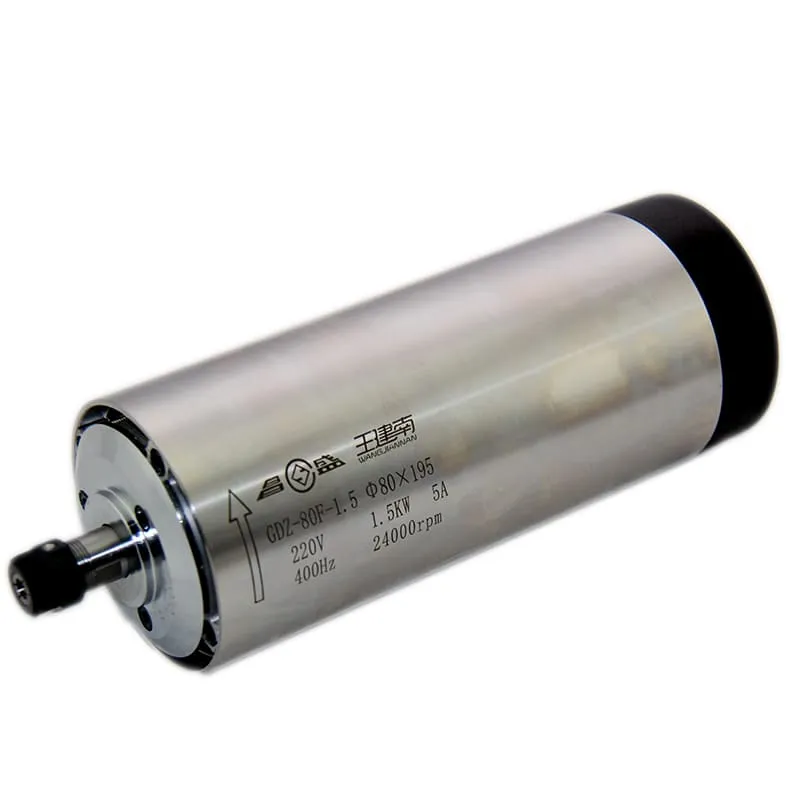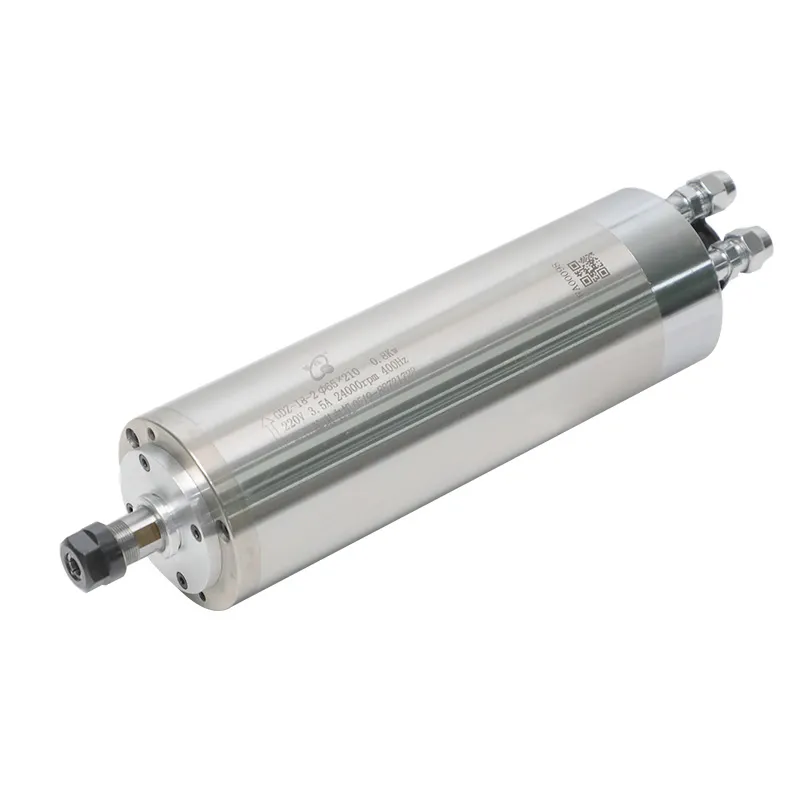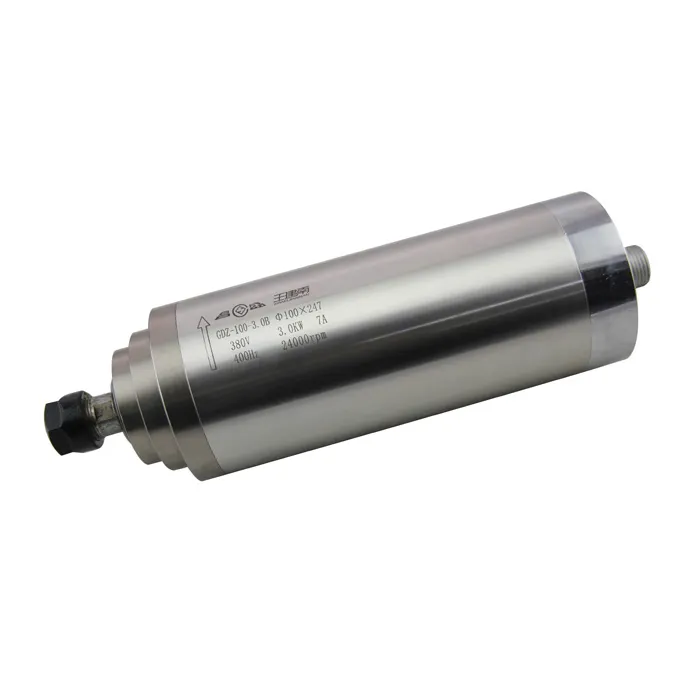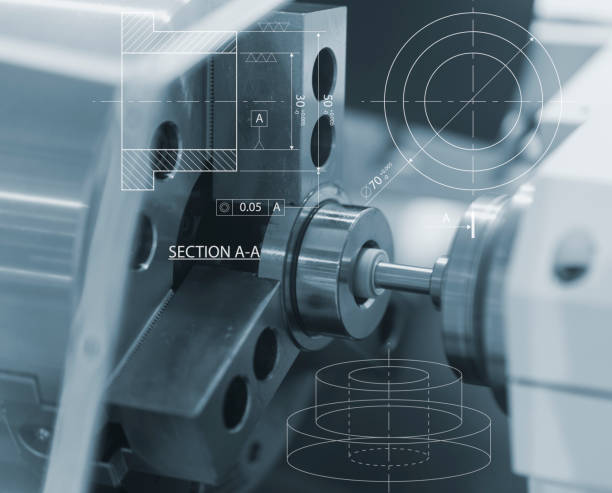The career of a CNC machinist offers a rewarding pathway filled with technical challenges, job stability, and an opportunity for significant earnings. But how much does a CNC machinist actually make? Whether you’re an experienced machinist, an aspiring professional, or simply curious about the field, understanding the different factors that influence a CNC machinist’s salary can help set clear career expectations. This article provides a comprehensive guide to CNC machinist salaries, factors influencing pay, and insights into the various aspects of this exciting career.
What is a CNC Machinist?
A CNC machinist operates Computer Numerical Control (CNC) machines, which are essential in the manufacturing industry. These machines automate the production of precise parts made from metal, wood, and plastic. CNC machinists are responsible for setting up machines, running production batches, and ensuring that the components meet precise specifications.
This job requires a deep understanding of machine tools, G-code, precision measurement, and problem-solving skills to tackle issues that may arise during production.
Key Responsibilities of a CNC Machinist
- Programming CNC Machines: Creating, modifying, or troubleshooting G-code programs.
- Machine Setup: Setting up CNC machines for different jobs, including tool changes.
- Quality Control: Measuring and ensuring that produced parts meet tight tolerances.
- Maintenance: Performing routine maintenance to keep machines in top condition.
Average Annual Salary for CNC Machinists
The average annual salary of a CNC machinist in the United States is around $50,000, though this figure can vary widely based on experience, industry, and location. Entry-level machinists can expect to earn approximately $35,000 to $40,000, while experienced machinists with years of expertise can earn upwards of $60,000 or more annually.
| Experience Level | Average Annual Salary ($) |
|---|---|
| Entry-Level | 35,000 – 40,000 |
| Mid-Level | 45,000 – 55,000 |
| Experienced | 60,000 – 70,000 |
Factors Influencing CNC Machinist Salaries
- Experience: The more years of experience, the higher the pay. Senior machinists command higher wages due to their expertise.
- Location: Geographic area affects pay significantly. CNC machinists in industrial hubs like Detroit or Houston earn more than those in smaller towns due to higher demand.
- Industry: The industry plays a large role—CNC machinists working in aerospace, medical devices, or automotive industries tend to make more due to the precision required.

Image Credit: 1.5KW ER11 Round Air-Cooled Spindle
CNC Machinist Salaries in Different Industries
1. Aerospace Industry
The aerospace industry requires parts with the highest standards of accuracy. CNC machinists in this sector can expect to earn significantly more due to the complex and highly-regulated nature of their work. Annual salaries in aerospace can range from $55,000 to $75,000 depending on the level of precision required and the machinist’s experience.
2. Automotive Industry
The automotive industry is another significant employer of CNC machinists. Machinists create parts like engine blocks, gear components, and transmission parts. The average salary in this industry is between $45,000 and $60,000 annually, depending on production demands.
3. Medical Device Manufacturing
In the medical sector, CNC machinists produce parts for medical devices, which require exceptional precision and quality. Machinists working in this industry are often highly skilled and earn between $50,000 and $70,000 annually.
Entry-Level vs. Experienced CNC Machinists: What Affects Pay?
The salary of a CNC machinist largely depends on experience. Here’s how entry-level roles compare with more experienced positions.
1. Entry-Level CNC Machinist
Entry-level machinists typically handle simpler setups and run straightforward production jobs. Salaries start from $35,000 to $40,000 per year. At this stage, machinists may also undergo additional training, which might include certifications in CNC programming or G-code.
2. Experienced CNC Machinist
With 5-10 years of experience, machinists can command salaries of $60,000 or more. They usually take on more complex jobs, such as working with multi-axis CNC machines, managing entire production runs, and solving intricate machine problems. Certifications such as NIMS (National Institute for Metalworking Skills) help boost earning potential.
Regional Pay Differences for CNC Machinists in the United States
The cost of living and regional industry presence greatly affect salaries. In the Midwest, where manufacturing is a key industry, CNC machinists often make more than in regions with a lower demand for industrial work.
- California: Average salaries can reach $65,000, especially in tech-focused areas like Silicon Valley.
- Texas: In cities like Houston, where oil and aerospace industries thrive, CNC machinists make $60,000 – $70,000.
- Michigan: With its automotive base, CNC machinists in Detroit can make upwards of $55,000.

Image Credit: 24000RPM 0.8KW ER11 Water-Cooled Spindle
CNC Operator vs. CNC Machinist Salaries
Many people wonder about the difference between a CNC operator and a CNC machinist, especially when it comes to salary.
CNC Operator
A CNC operator typically handles the loading and unloading of parts, monitoring machine performance, and running pre-programmed jobs. They earn between $30,000 and $45,000 per year. Operators are more focused on production and require less programming knowledge compared to machinists.
CNC Machinist
A CNC machinist is responsible for setting up machines, programming jobs, and ensuring that parts meet design specifications. Because of the additional skills required, machinists earn more, typically between $45,000 and $70,000 per year.
| Position | Salary Range ($) |
|---|---|
| CNC Operator | 30,000 – 45,000 |
| CNC Machinist | 45,000 – 70,000 |
Certifications That Can Increase CNC Machinist Salaries
Certain certifications can help CNC machinists command higher salaries. These certifications demonstrate proficiency and a higher level of expertise, which employers value.
- NIMS (National Institute for Metalworking Skills): Recognized across the industry, a NIMS certification can significantly boost a machinist’s earnings.
- HAAS CNC Certification: Specialized training for HAAS CNC machines can increase employability and income potential.
- Forklift Certification: For machinists working in a warehouse setting or needing to move heavy materials, forklift operator certification adds value to their skillset.
Career Advancement Opportunities for CNC Machinists
1. CNC Programmer
With experience, many machinists transition to CNC programmers, responsible for creating the G-code programs that run the machines. Programmers can earn $70,000 or more annually, depending on experience and industry.
2. Manufacturing Engineer
Some machinists move into manufacturing engineering roles, using their deep understanding of CNC processes to optimize production workflows. Engineers often earn $80,000 to $100,000.
3. Maintenance Technician
With additional training, CNC machinists can become maintenance technicians, focusing on troubleshooting and maintaining CNC machinery. This role often pays between $50,000 and $70,000 annually.

Image Credit: 24000RPM 3KW ER20 Water-Cooled Spindle
FAQs
1. How much do CNC machinists earn on average?
CNC machinists earn an average of $50,000 annually in the United States. Entry-level positions start at around $35,000, while experienced machinists can make $60,000 or more.
2. Does experience affect CNC machinist salaries?
Yes, experience significantly impacts salaries. Experienced CNC machinists can earn upwards of $70,000, particularly if they hold certifications like NIMS.
3. Are CNC machinists in high demand?
Yes, CNC machinists are in high demand across industries like automotive, aerospace, and medical devices, making it a stable career choice.
4. What certifications can help CNC machinists increase their earnings?
Certifications like NIMS, HAAS CNC certification, and forklift operator certification can help CNC machinists improve their skills and increase their salaries.
5. What is the difference between a CNC operator and a CNC machinist?
A CNC operator focuses on loading parts and monitoring machines, whereas a CNC machinist is skilled in programming, setup, and quality control, resulting in higher pay.
Conclusion
CNC machinist salaries can vary widely based on factors such as experience, location, and industry. While entry-level positions may start at around $35,000, experienced machinists have the potential to earn significantly more. Certifications and additional skills such as CNC programming or machine maintenance can further boost earning potential. As the demand for precision machining grows, the role of the CNC machinist remains a lucrative and stable career choice. If you are considering a career as a CNC machinist or looking to advance within the field, it’s an investment of time and skills that promises solid returns.
For more information about high-quality CNC spindle products to boost your machining capabilities, visit spindlemotorshop.com to explore our wide selection of reliable spindle motors and accessories.

